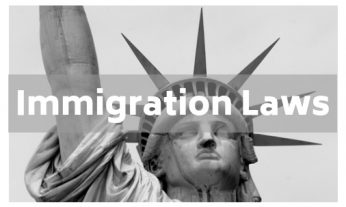 California immigration laws. When the Immigrant Worker Protection Act became law in January 2018, many hoped it would keep local immigrants safe from ICE agents and their workplace investigations. The feds have temporarily enjoined a number of the provisions in California’s law, however. So, where do things stand right now? A local labor and employment attorney might be worth consulting.
California immigration laws. When the Immigrant Worker Protection Act became law in January 2018, many hoped it would keep local immigrants safe from ICE agents and their workplace investigations. The feds have temporarily enjoined a number of the provisions in California’s law, however. So, where do things stand right now? A local labor and employment attorney might be worth consulting.
Assembly Bill 450
California’s bill, alternately referred to as AB 450 and the Immigrant Worker Protection Act, banned employers from cooperating with immigration agents in several ways:
- Immigration enforcement agents were not be allowed access to areas of the facility that were not open to the public;
- These agents were not allowed to obtain or view employee records;
- Agents were unable to re-verify the Employment Eligibility Verification form (Form I-9), without a requirement by federal law.
Immigration Laws – New Federal Push
A new temporary injunction orders the state to stop impeding private business from cooperating with federal investigators looking into illegal immigration. The injunction prevents the state from putting restrictions on when and how employers can cooperate with ICE agents with regard to I-9 issues.
The impetus behind the federal push for relaxing state requirements on employers is based on the perceived “precarious situation” employers have been put in when crushed between state law and federal expectations. The federal intervention is designed to enhance cooperation between federal enforcement officers and business owners.
Additionally, the injunction was meant to address ambiguities within the California immigration laws, which do not provide a definition for who, exactly, is considered an immigration enforcement agent. That has been problematic for employers who hire foreign nationals through the U.S. Citizenship and Immigration Service (USCIS), since that agency approves applications only in conjunction with the employer’s agreement to cooperate with record-sharing and premises inspections. Backing out of that promise could lead to a number of problems, including:
- Reviving particular immigrations cases;
- Prompting larger investigations;
- Rescinding the USCIS approval for foreign nationals.
What Parts of California Immigration Laws Still Stand?
According to the federal decision, the notice obligation for California employers remains intact. Employees must be told of I-9 reviews or other inspections related to immigration status within 72 hours of notification from ICE.
Consequences for Employers with Documentation Improprieties


